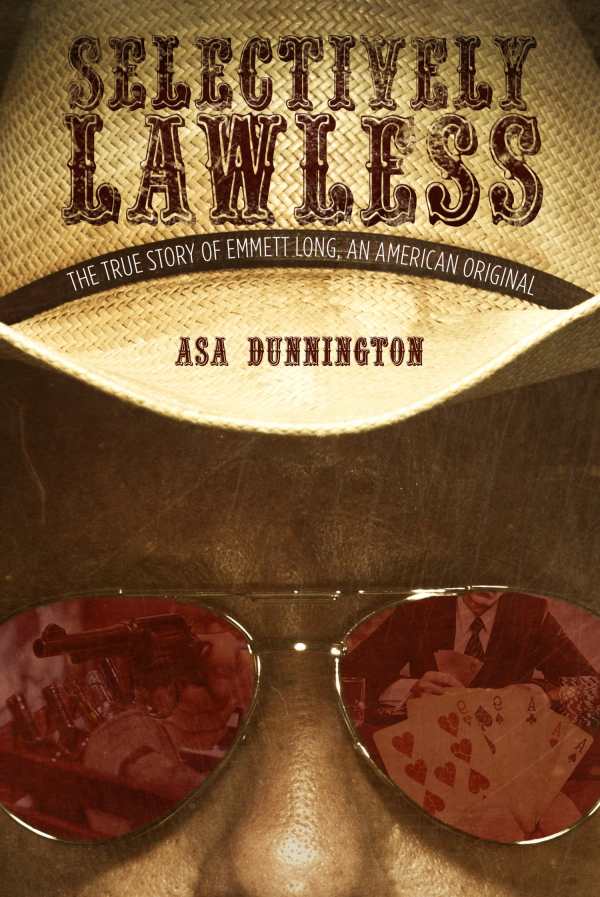
Selectively Lawless
The True Story of Emmett Long, an American Original
Selectively Lawless is a rollicking biography of a boundary-testing man.
Bombastic and good-natured, Asa Dunnington’s biography of his hell-raising uncle Emmett Long, Selectively Lawless, reads like an Old West tall tale that you want to believe. It follows Emmett, the son of sharecroppers, along his meteoric rise to wealth and infamy—aided by a little calculated poker, a little bootlegging, and a lot of audaciousness and moxie.
Narrated in a tangy lilt that befits its western heritage, Emmett Long’s story is fast-moving and braggadocious, filled with drawled clichés that are incorporated because of their familiar flavors. At fourteen, Emmett up and quits the family’s farm work, vowing to return with pockets full of cash and in a shiny new car. Wild as it seems, the promise is fulfilled just a couple of years later. Once home, Emmett elects to invest his gambling earnings in a new venture: moonshine. This is all before the lad turns twenty, mind—and it’s enough to hook the audience on this true original’s unlikely tale.
Crime “pays pretty good if you work hard”; time and again, Emmett discovers new ways to bend the rules and make his cash, and he’s always on the lookout for a good investment. Within paragraphs, Emmett bribes lawmen and Native American voters alike. The narrative takes to Emmett’s unsavory developments with speed, condemning little and conveying much in a few words. Its language is colloquial and casual, and its dialogue could easily fit into any John Wayne movie.
Anecdotes are shared in a largely linear fashion, though they are sometimes interrupted by italicized flashes forward or backward, in which Emmett gives context to events, or expresses regret, or draws unexpected connections, all for Dunnington’s benefit. The technique is leaned on more and more as the book progresses.
There are some anachronisms, from references to WWE to The Wizard of Oz; they feel incorporated for the sake of holding a modern audience’s attention, though, and if they’re a flaw, they’re a flaw you want to forgive. This isn’t an elegant text, but it doesn’t aim to be—it’s all about conveying good, “clean” fun.
Emmett is a larger-than-life character, shown breaking the law but also adhering to the Golden Rule. If he fights, he fights fair. If he kills a few men, he regrets it. In his bootlegging business, he is sure to pay fair wages. Banks are the enemy, and the common man should be defended. He may sell whiskey, but he has better sense than to become dependent on it. His moral code is repeatedly emphasized.
Set up as the most honest kind of cheat, Emmett somehow maintains the high ground through most of the book, emerging as a likable rapscallion who enjoys presenting his past with affectations of regret. Other characters are less dynamic, partially because Emmett’s big personality means that he often eclipses others by default. Even Frank Nash and “Pretty Boy” Floyd, both of whom factor into Emmett’s story, pale in comparison. Emmett may burn up stolen mortgages to even the playing field, but he does not share his stage.
Cheerful, wild, and ultimately less apologetic than Emmett would have you believe, Selectively Lawless is a rollicking biography of a boundary-testing man.
Reviewed by
Michelle Anne Schingler
Disclosure: This article is not an endorsement, but a review. The publisher of this book provided free copies of the book and paid a small fee to have their book reviewed by a professional reviewer. Foreword Reviews and Clarion Reviews make no guarantee that the publisher will receive a positive review. Foreword Magazine, Inc. is disclosing this in accordance with the Federal Trade Commission’s 16 CFR, Part 255.
